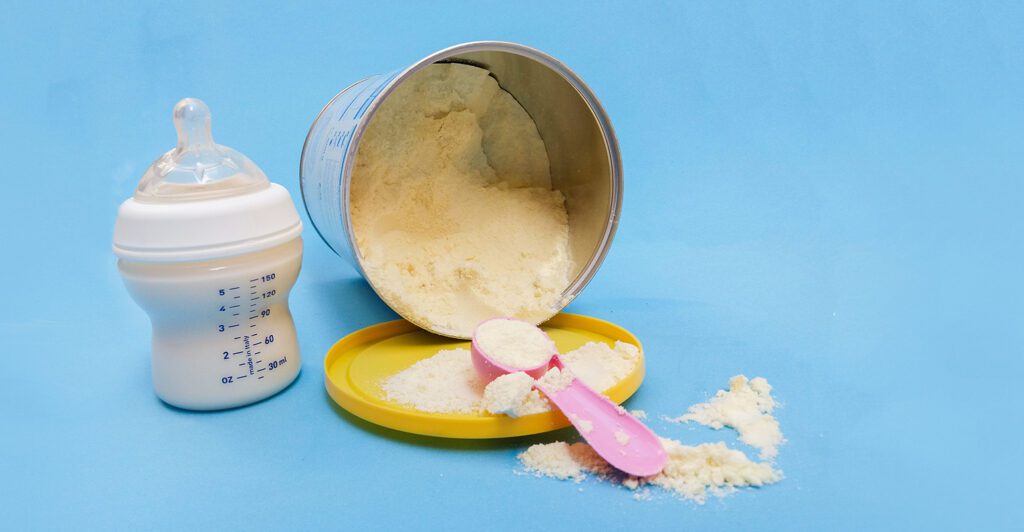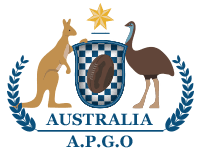
Infant formula: All You Need To Know
Are you a parent or care provider of an infant?
In today’s fast-paced world, proper nutrition is essential during the first few months. Today’s formulas are more advanced than ever before. As a parent, you can choose from an array of formula options carefully crafted to support your growing baby’s nutritional needs, whether breastfeeding or formula feeding. Baby formula can be a safe and nutritious option for babies who are not breastfed. Whether you’re choosing to formula-feed your baby due to health concerns, they’re unable to be breastfed, or simply because it’s easier on mommy, you’ll want to make sure you choose the best option for your child. Some parents worry about the ingredients in different formulas, so we explain what goes into each type of formula and how beneficial they prove. By educating yourself on the insights of high quality and nutritious baby formula, you can provide your baby with the proper nutrition they need throughout their development.
How do we define baby formula?
Baby formula is a unique nutritional food used to feed babies. It can replace breast milk or be used as a supplement. Infant formulas are made in three forms: ready-to-feed, liquid concentrate, and powder.
1. Powder formula- You can mix the powdered formula with water and feed your baby with a spoon. This is the cheapest milk formula out of the three.
2. Liquid concentrate- Like powdered, you can also make this type of formula with safe water.
3. Ready to feed formula- Ready-to-use formula is a convenient infant formula that does not need to be mixed with water.
Know About the Baby formula composition
Baby formulas contain different nutrients, depending on the formula brand. However, a variety of brands offer cow milk-based formulas. Premature infants and babies with certain medical conditions can also use specialised procedures.
Cow based baby formula
One of the Babyformulasa is cow’s milk-based. It contains nutrients similar to those found in breast milk and is used by most babies. Some babies allergic to cow’s milk protein require soy or hydrolysed protein formulas.
Soy-based baby formula
Soy-based formulas are helpful for some babies, but not all. They’re handy for babies who have specific metabolic needs. Note that babies with a cow’s milk allergy might also experience a soy milk allergy.
Protein Hydrolysate baby formula
If your infant has trouble digesting cow’s milk or soy formulas, you may want to try protein hydrolysate formulas. These formulas contain protein that’s been wholly or partially broken down and hydrolysed into smaller sizes than those in other formulas. These hydrolysate formulas, extensively hydrolysed, are an excellent choice for babies with severe protein allergies.
What else is there in the composition?
The governing bodies have determined that a certain ratio of nutrients should meet the nutritional requirements of infants.
Manufacturers produce infant formulas richer in nutrients than the minimum requirements of governing authorities. These nutrient-rich formulas contain enough of all the necessary nutrients to meet label claims throughout the shelf-life of their products.1 These products may also have some of the following additional nutrients:
Vitamins – Biotin, inositol, thiamine, choline, riboflavin, niacin, Folic acid, and vitamins A, B6, B12, D, C, E, K many others.
Minerals– Calcium, iodine, magnesium, phosphorus, potassium, selenium, copper, chloride, sodium, and zinc
Additional supplements- Fatty acids, probiotics, protein (such as amino acids), and linoleic acid
Additional ingredients– Lactose and plant-based oils
How does baby formula differ from regular breast milk?
Baby formula can act as an alternative to breast milk, providing proper nutrition for babies with the help of vitamins and minerals. Although the formula does not precisely replicate breast milk nutritionally, it is well-rounded and nutritious for babies.
One of the main differences is that the texture of infant formula may be thicker, making it harder for babies to digest. As a result, infants who drink formula may produce more gas and have firmer stools than breastfed babies.
Manufactured formulas do not contain the complex ingredients found in breast milk, which change to meet the baby’s evolving nutritional needs. Infant formula does not have antibodies found in breast milk that provide babies with added protection against infection and illness. Infant formula is manufactured and therefore doesn’t contain antibodies.
Safety measures for using infant formula
- It’s essential to keep a few things in mind when choosing what kind of formula to feed your baby. First, the shelf life of most baby formulas is one year; after that, nutrients begin breaking down, and the procedure is no longer nutritionally sound. It’s a good idea to avoid buying or using expired formulas.
- Before mixing concentrated infant formula or powdered baby formula with water, check the instructions on the package to see how long the water should be boiled.
- To warm a pre-made formula, place the bottle in warm water for a few minutes. Then, test the temperature by putting a few drops on the back of your hand or wrist.
Conclusion
With Allcarewarehouse, an NDIS approved disability aids provider, you can now get the organic baby formula from the comfort of your home. We provide a lot of organic formulas for you to choose the perfect organic substitute for your child. The organic baby formulas are going to be similar to the breastmilk and full of nutrition that is going to keep your baby healthy





If you’re looking for online betting, then look no further because 333betcasino is the one. Give it a try and enjoy betting now, and good luck! 333betcasino
F12betBR, curto demais essa plataforma! Sempre tem umas promoções boas e as odds são bem interessantes. Já fiz uma fezinha! Confere aqui: f12betbr
333bbet? Not bad, not bad at all. Good selection of games and the odds seem fair. Give it a shot! 333bbet
PCsobet2 is legit! Been using it for a while now for my lottery fixes. Pretty straightforward and reliable. pcsobet2
Alright, gg777a. I’ve thrown a few bucks their way. Interface is clean, and the payouts are timely. Worth a peek. gg777a
Is jljl77legit legit? The name is kinda funny, but the site looks decent. Deposited a small amount to test it out. Will update you guys if I win big! Check them out: jljl77legit
Boss77ph is my go-to site lately. They have a good selection of games and the payouts are pretty quick. Definitely worth checking out if you’re looking for a new place to play: boss77ph
Just signed up on yy7777. The welcome bonus is tempting! Let’s see if I can turn that into something bigger. Anyone else playing there? Find out more: yy7777
Z25com… Honestly, it is what is is. Some slots and table games that look mostly okay. Probably not a permanent daily fixture but may scratch an ich so to speak. See more at z25com.
Yo, Luckykingph! Just tried my luck here. Solid platform, easy to navigate. Hoping to hit that jackpot soon Keep up the good work! Check them out now luckykingph
22phdreamlogin! Logging in was a breeze. Found my favorite games right away. Site feels secure, which is a big plus for me Check this page out 22phdreamlogin.
vb777gameclub is a vibe, man. Good selection of games and the community seems pretty solid. Check it out for some chill times. vb777gameclub
Yo, 13winokvip… VIP treatment for everyone, that’s the slogan, right? Solid site with a good selection of games. Worth a look. 13winokvip
Lottus is giving, like lottery giving! Check it out for lottery games, maybe today’s your lucky day! Good luck fam! lottus